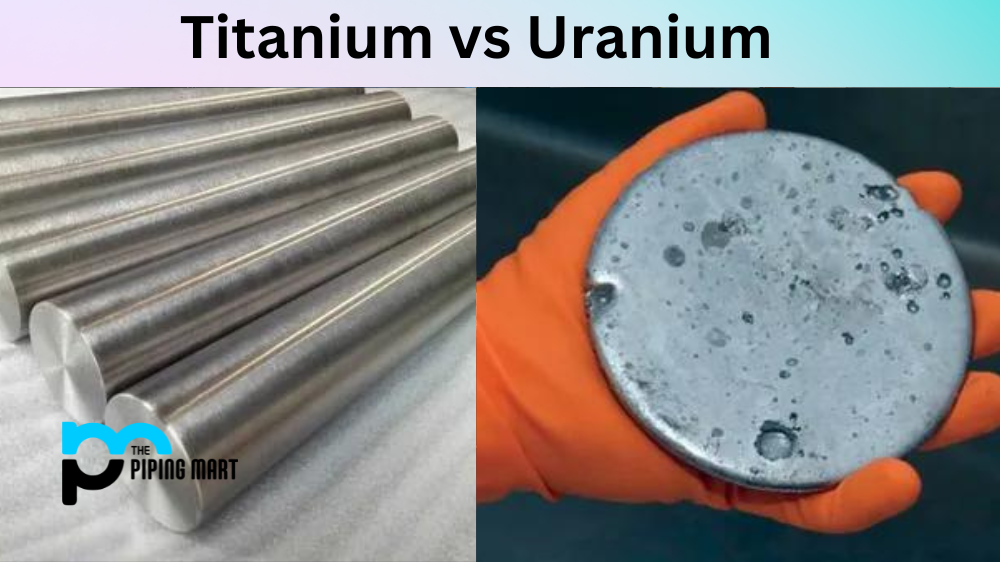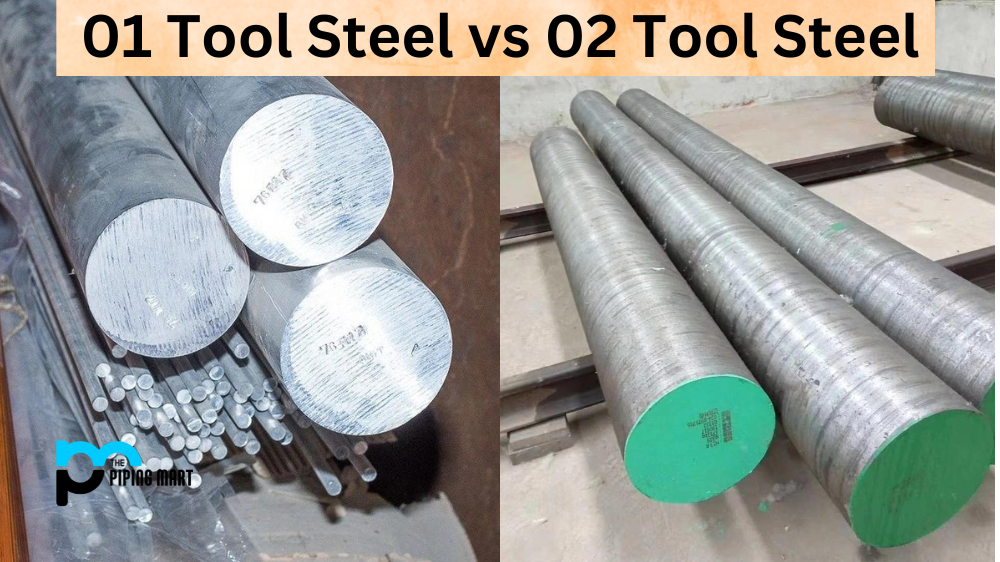Titanium and Uranium are two of the more popular options in the world of elements. Both metals have several distinct qualities that make them desirable for different purposes. However, some significant differences between these two elements must be considered when deciding which one is best for your needs. Let’s look at Titanium vs Uranium to see how they compare.
Titanium
Titanium is a strong, lightweight metal that is resistant to corrosion. Titanium is often used in aerospace and medical applications where weight is critical. Additionally, Titanium can be recycled without losing any of its properties.
Uranium
Uranium is a radioactive metal that is used in nuclear reactors and weapons. Uranium is abundant in the Earth’s crust but not in large concentrations. Uranium can be used as fuel for nuclear reactors or weapons when enriched.
Difference Between Titanium and Uranium
Strength and Durability
Titanium is known for its superior strength and durability compared to other metals. It’s incredibly lightweight yet strong enough to withstand extreme temperatures and pressures without losing shape or breaking down quickly. This makes it ideal for applications that require strength and durability, such as aircraft or medical implants. On the other hand, Titanium is less solid and durable than Uranium. It is much denser than Titanium and has a relatively low melting point, making it less suitable for applications where strength and durability are paramount concerns.
Corrosion Resistance
Due to its inert nature, Titanium is highly resistant to corrosion, meaning it does not react with other materials quickly. This makes it an ideal choice for outdoor applications where exposure to moisture or chemicals can cause deterioration in other metals over time. On the other hand, Uranium is less corrosion-resistant than Titanium due to its reactive nature; it reacts with different materials quickly when exposed to air or water, which can cause corrosion over time if not adequately protected from moisture or chemicals.
Radioactivity
Uranium is well known for being radioactive; it emits energy in the form of radiation which can be harmful to humans if not properly contained or shielded from exposure. On the other hand, Titanium is completely non-radioactive; this makes it a much safer option when considering materials that may be exposed to humans or used in medical applications where radiation could be dangerous.
- Titanium is a more robust metal than Uranium.
- Titanium is more resistant to corrosion than Uranium.
- Titanium is lighter than Uranium.
- Titanium has a higher melting point than Uranium.
- Uranium is more radioactive than Titanium.
- Uranium is dense than Titanium.
Conclusion:
When comparing Titanium and Uranium, both elements have unique properties that make them desirable in certain situations. Titanium has superior strength and durability compared to Uranium and better corrosion resistance, making it great for outdoor applications where exposure to moisture or chemicals can cause damage over time. Uranium’s main advantage over Titanium is its radioactivity; At the same time, this can be dangerous if not handled correctly, but it can also be beneficial in certain situations such as medical imaging or nuclear power generation. Ultimately, which element you choose will depend on your specific needs and application requirements; however, understanding their differences should help make your decision easier!

Pipingmart is a B2B portal that specializes in metal, industrial and piping items. Additionally, we share the latest information and information about materials, products and various types of grades to assist businesses that are involved in this business.




